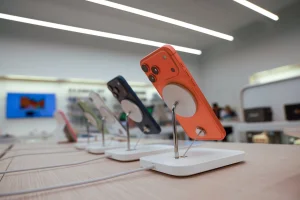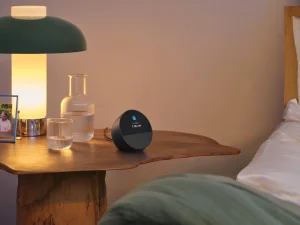Which smart appliances generate more nonconformity, according to study
A study revealed that household appliances with Wi-Fi or Bluetooth have more failures: lose consumers confidence in their favorite brands

The promise that technology would simplify life at home is not always fulfilled. Today, many household appliances include advanced features such as Wi-Fi connection, artificial intelligence and synchronization with mobile apps. But far from making daily life easier, these innovations are generating more problems than expected. This is according to JD Power's new 2025 Appliance Reliability and Service Study, which indicates that smart appliances not only experience more failures, but also affect consumer brand loyalty.
The report shows that appliances with connectivity features (Wi-Fi or Bluetooth) have an average rate of 87 problems per 100 units (PP100). In contrast, those without these technologies report only 63 problems per 100 appliances. This difference calls into question whether it's really worth opting for "smart" models.
"Modern appliances are much more sophisticated and packed with technology. But that level of complexity also brings with it more potential for failures," says Michael Taylor, executive director at JD Power.
Users who actively use these features experience even more issues: 92 problems per 100 appliances, while those who have connected equipment but don't use these features experience 80 PP100. This trend indicates that, in many cases, advanced features generate more frustration than real benefits for the consumer.
The impact of these problems is not minor. The study reveals that only 32% of customers who have had failures with their appliances plan to buy the same brand again. In contrast, 52% of those who have not had problems say they would. As shown, brand reliability is directly affected by these inconveniences, which make the difference between choosing or discarding a product from the same company.
Among the appliances that generate the most dissatisfaction are front-loading washing machines, with an average of 89 out of every 100, the highest figure among all categories. In contrast, clothes dryers and kitchen appliances perform better, with just 56 PP100 each.
As for brands,GE leads in reliability in several categories, including dryers, refrigerators, and kitchen appliances. It also earns the highest rating for service experience, with a score of 778 out of 1,000. It is followed by Samsung (768) and Whirlpool (765).
The temptation to buy a refrigerator that suggests recipes or a washing machine that sends notifications can be strong. However, these types of features, although modern, do not always guarantee better long-term performance. Therefore, when choosing new equipment for your home, it is worth asking yourself if you really need all that technology, or if it is preferable to opt for simpler but more reliable models.
This news has been tken from authentic news syndicates and agencies and only the wordings has been changed keeping the menaing intact. We have not done personal research yet and do not guarantee the complete genuinity and request you to verify from other sources too.











